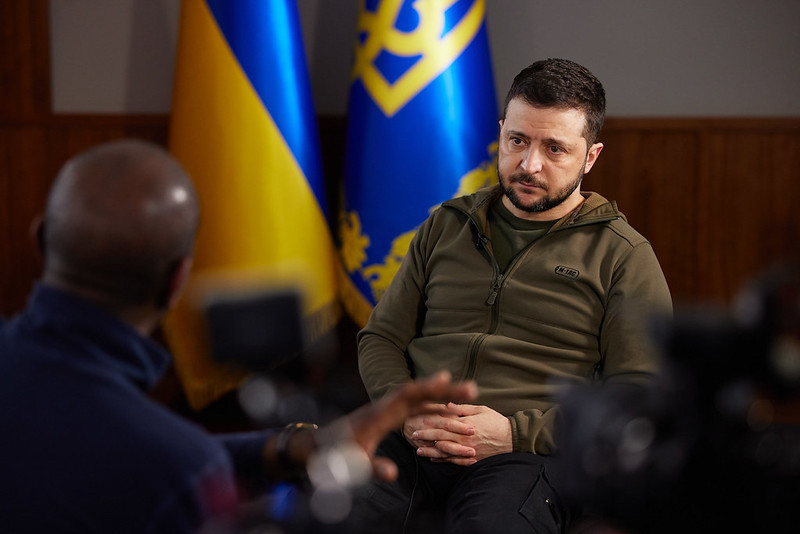
It has been reported that the Ukrainian President, Zelensky, has taken action to impose sanctions against certain leaders within the Ukrainian Orthodox Church (UOC) due to their perceived threat to the security of the nation. This move comes as the country awaits the potential passing of a bill that would ban the UOC.
Volodymyr Zelensky announced that the National Security and Defense Council has decided to take action against the Ukrainian Orthodox Church. The NSDC has instructed the government to submit a bill to parliament that would ban religious organizations affiliated with Russia and to increase efforts to identify and counter Russian intelligence activities in the Ukrainian church.
The Ukrainian Orthodox Church (UOC)
An article in TASS stated that the Ukrainian Orthodox Church (UOC) is a self-governing church within the Moscow Patriarchate, with its special status recognized in the Charter of the Russian Orthodox Church and the Charter of the Ukrainian Orthodox Church. However, in 2018, the so-called Orthodox Church of Ukraine (OCU) was created by two schismatic organizations and was granted autocephaly by Patriarch Bartholomew of Constantinople.
The Russian Orthodox Church and the UOC do not recognize the OCU as canonical, and after its creation, OCU supporters seized UOC church buildings by force. The Ukrainian government is increasing pressure on the UOC, and an adviser to the Patriarch of Moscow has accused the Kiev regime of feeling emboldened and no longer having to hide behind the veil of democracy because it has the support of its Western handlers.
Also Read: Ukraine's Probe of Historic Kyiv Orthodox Christian Monastery Draws Russian Ire
Zelensky Imposes Sanctions on UOC Clergy
According to CNE, it has been reported that two weeks ago, Ukrainian President Zelensky imposed sanctions on a group of clergy from the Ukrainian Orthodox Church (UOC). As a result of these sanctions, these priests and bishops will not be allowed to take money out of the country or own land for five years, and their capital has been frozen.
In addition to these measures, it has been reported that the government has dismissed Elena Bogdan, the leader of the State Service for Ethnopolitics and Freedom of Conscience, who was known for her opposition to a potential ban on the UOC.
These developments follow searches of UOC monasteries and schools by the Ukrainian security services, who claim to have found pro-Kremlin material there. However, there are rumors that this material may have been planted.
Anti-Russian Affiliated Law
In an article in The New York Times, Zelensky announced that he plans to draft a law that would make it impossible for religious organizations affiliated with centers of influence in Russia to operate in Ukraine. He also directed the government to investigate the Ukrainian Orthodox Church and its ties to Moscow and take any necessary measures based on the inquiry's findings. Zelensky's plans may be popular with many Ukrainians who are increasingly anti-Russian.
Still, they raise questions about the definition of collaboration in a nation at war and the compatibility of such a ban with the freedom of religion guaranteed by the Ukrainian Constitution. The Ukrainian Orthodox Church has historically been subordinate to the Russian Orthodox Church, which is based in Moscow and has strong ties to Russian President Vladimir Putin.
Related Article:Ukraine's Proposed Ban on Russia-Linked Churches Sparks Controversy


















